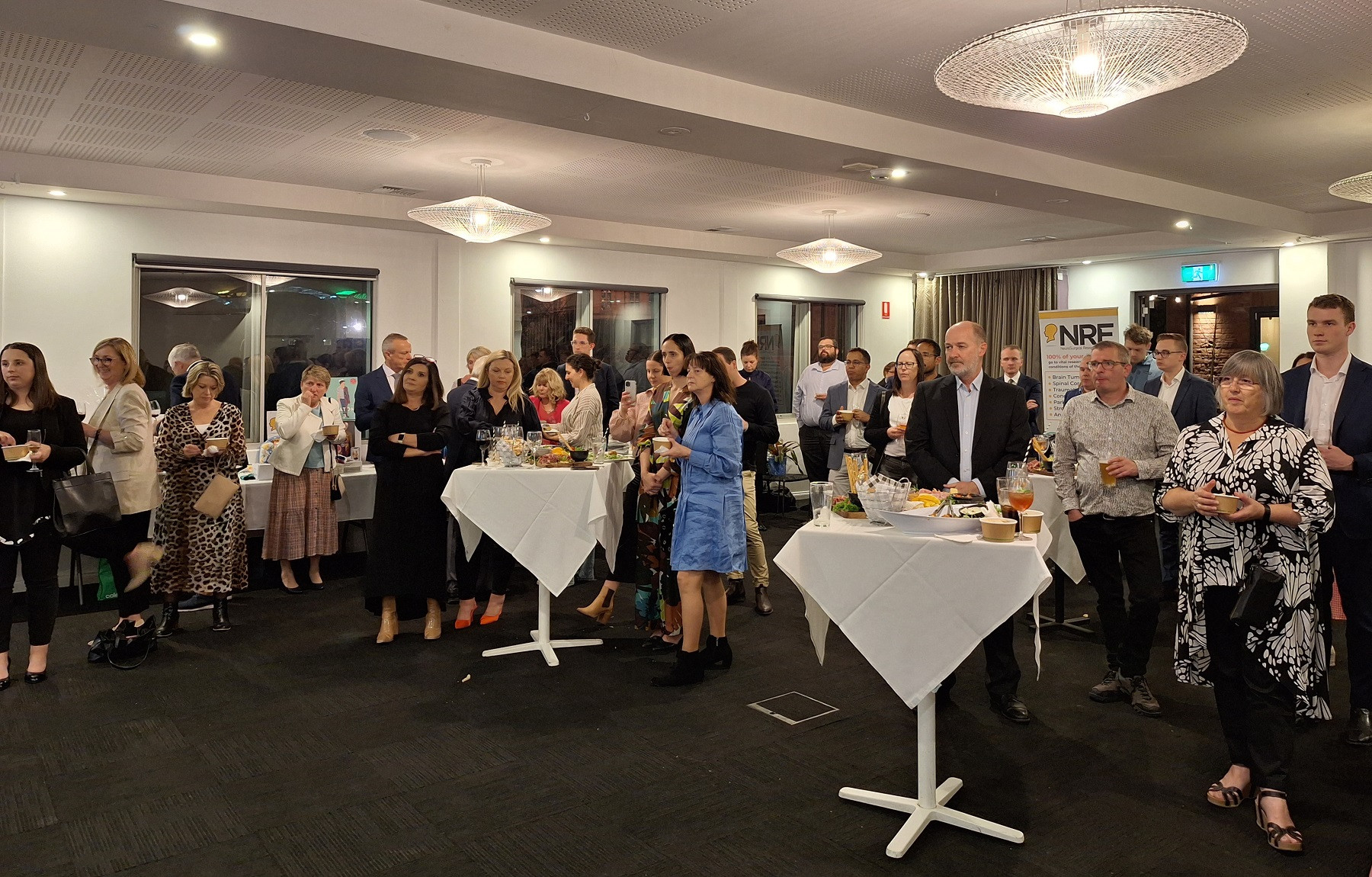Grey May 24 Closing Cocktail Party
Celebrating the end of Grey May and the meet & greet of The SA Brain Tumour Support Nurse
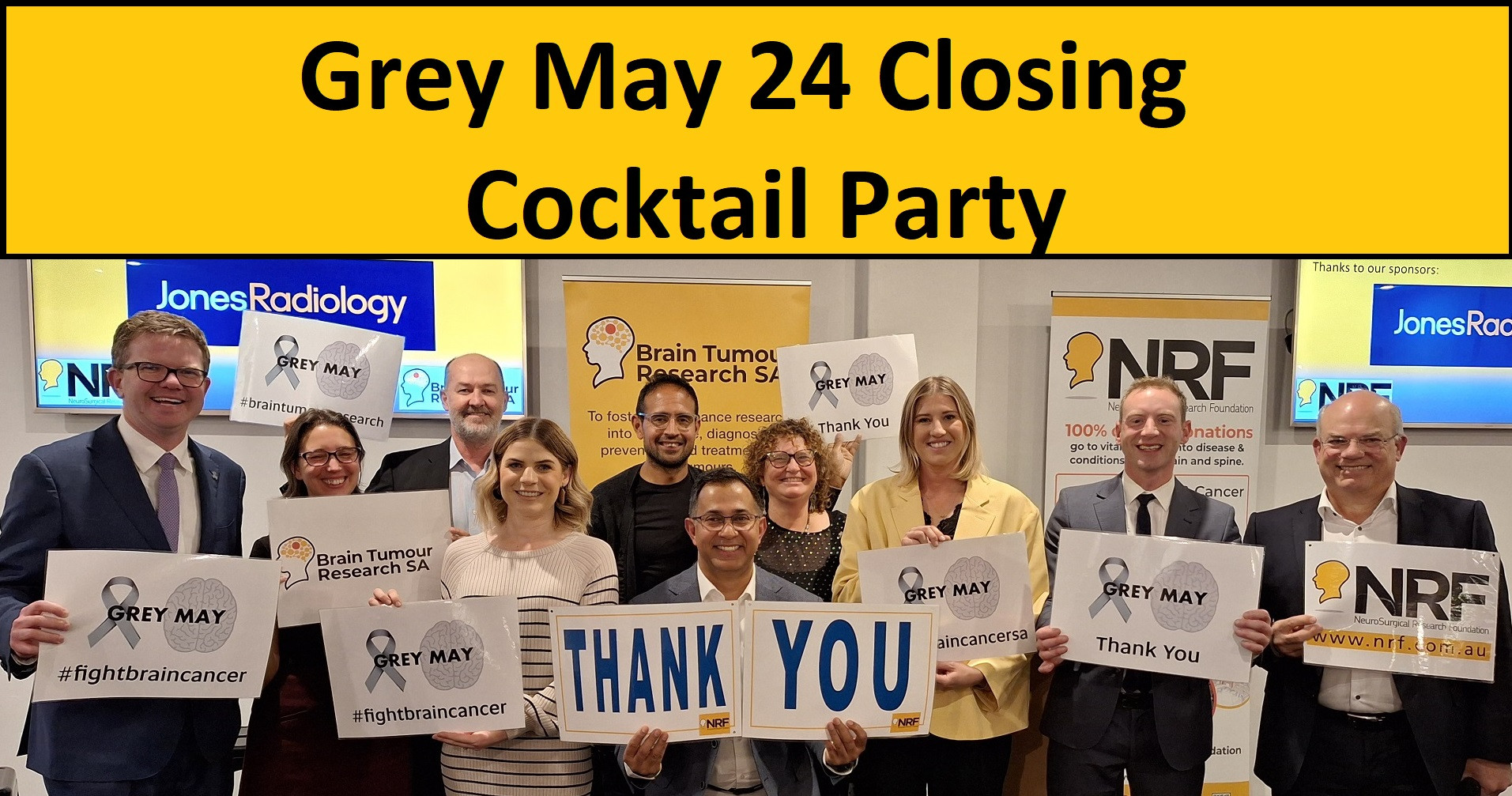
As this year's Grey May draws to a close, the NRF celebrated its success by hosting a get together of researchers, clinicians & supporters alike: to say thank you, learn about the impact of this very special month and to officially meet the newly appointed Brain Tumour Support Nurse of South Australia herself.
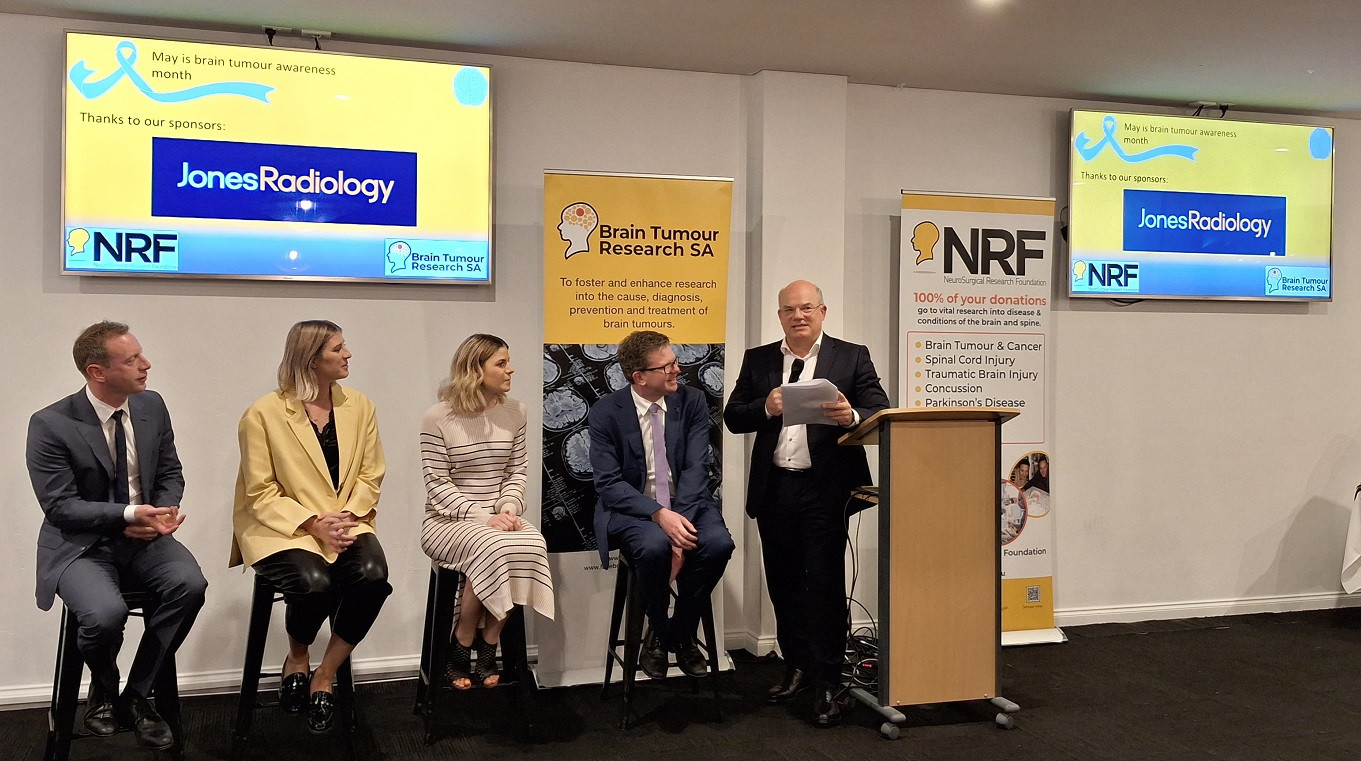
We heard from 2 panel discussions over the evening, the first attended by: The Hon Chris Picton MP (Health Minister), Hayley Henley (Brain Tumour Support Nurse), Chloe Drogemuller-Fiebig (Brave for Dave) & Hon David Speirs MP (Leader of the Opposition)
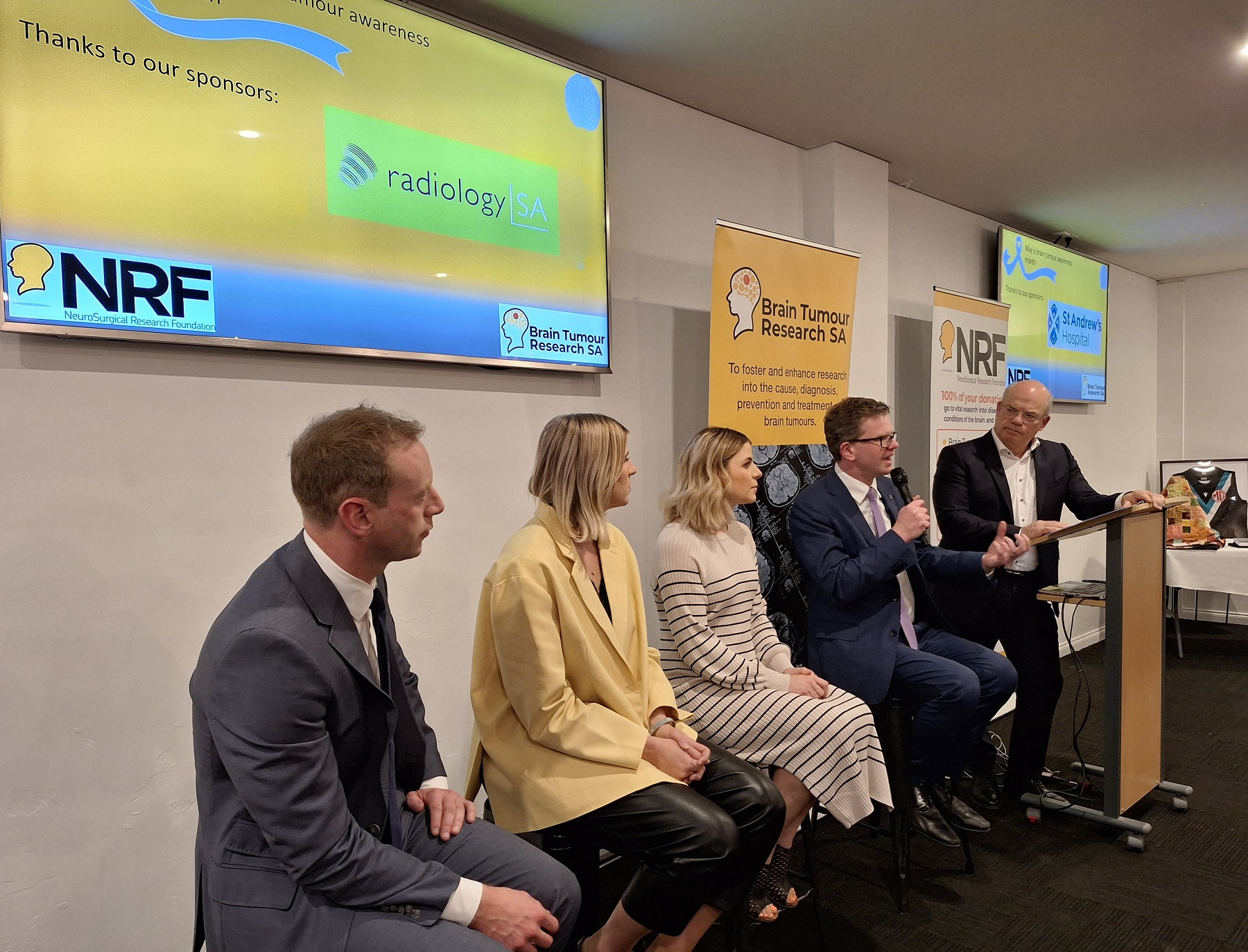
''I’d like to thank Chloe for her advocacy for bringing this to light in terms of the gap that was there, so we’ve really been able to work with the foundation to put together the proposal and the funding to now deliver our first brain cancer nurse for SA. We had a huge number of applications from talented nurses across the system who provide cancer care. We have been exceptionally lucky that Hayley has applied and been successful, and in 3 weeks' time will start in the new role as our first ever Brain Cancer Coordination nurse here in SA. Thank you very much and congratulations.''
Hon Chris Picton MP (Health Minister)
''I’m very honoured and blessed to be given this role for an opportunity to make a difference to people living to with brain cancer and their families.''
Haley Henley, Brain Tumour Support Nurse
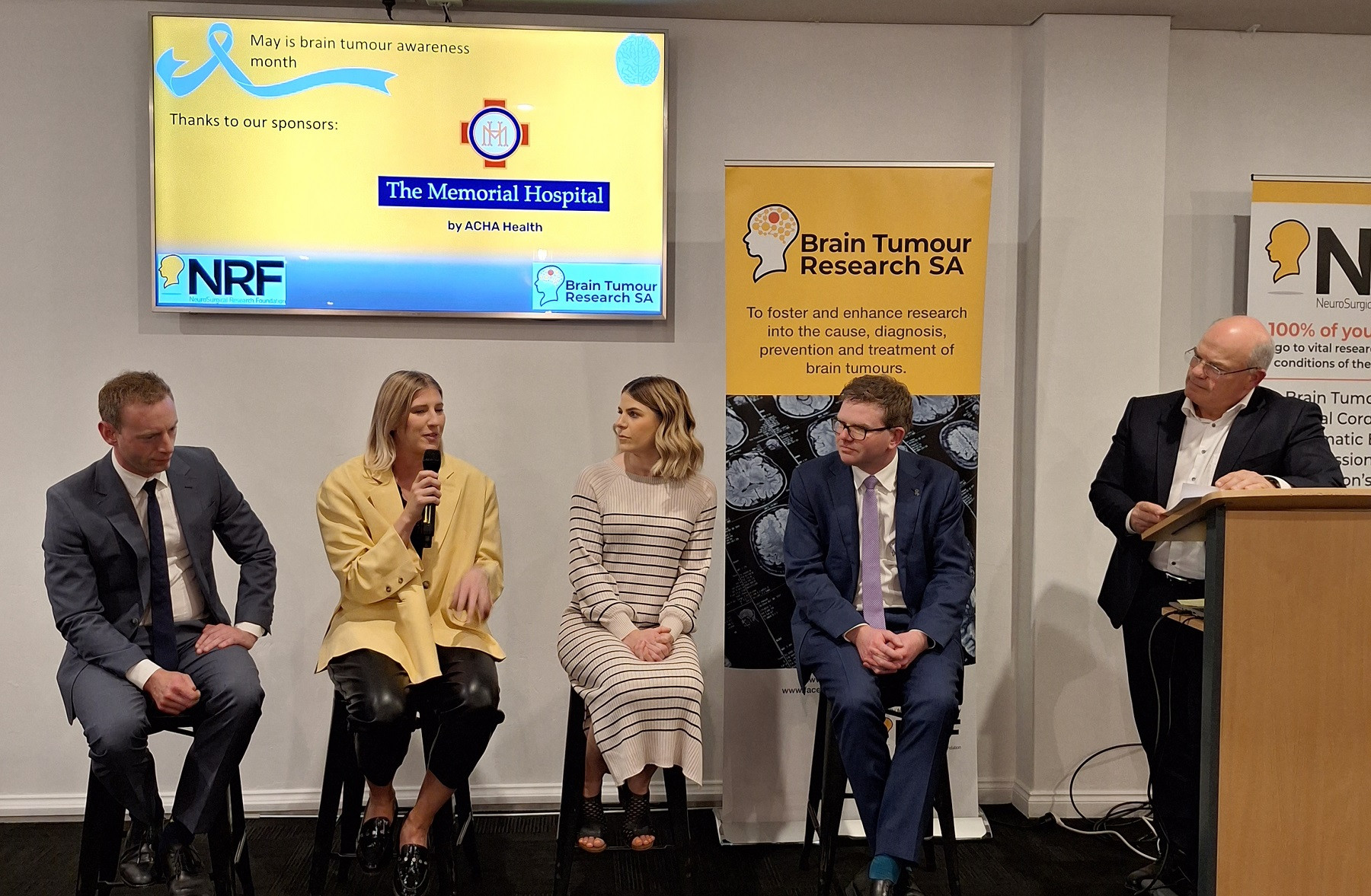
''My husband Dave, was diagnosed in 2021 and passed away 7 months later. We had a 11-week old and 3.5-yr old at the time so life was very chaotic. Obviously, this took us by the biggest surprise and shock as the symptoms came quite quickly. Then for him to pass 7 months later was devastating. We need to act quickly and provide the support not only clinically, but psychologically, socially and emotionally to patients and their families and carers. To have a support coordinator specific to brain cancer, to understand at it a deeper level will make such a huge difference, it doesn’t change a diagnosis but it will certainly help make difference.''
Chloe Drogemuller-Fiebig (Brave for Dave)
''When Chloe came and approached the government through Ashton Hurn (Shadow Health Minster - not present), we saw this as something we just had to jump on board with, we lent her support to the campaign for the provision for this nurse within the health system. I’ve been involved with lots of campaigns through my ten years in politics and didn’t take a lot of campaigning as the government just saw this a gap that needed to be filled and it was pushed onto the public agenda. Within in a very short period of time the government responded.''
Hon David Speirs MP (Leader of the Opposition)
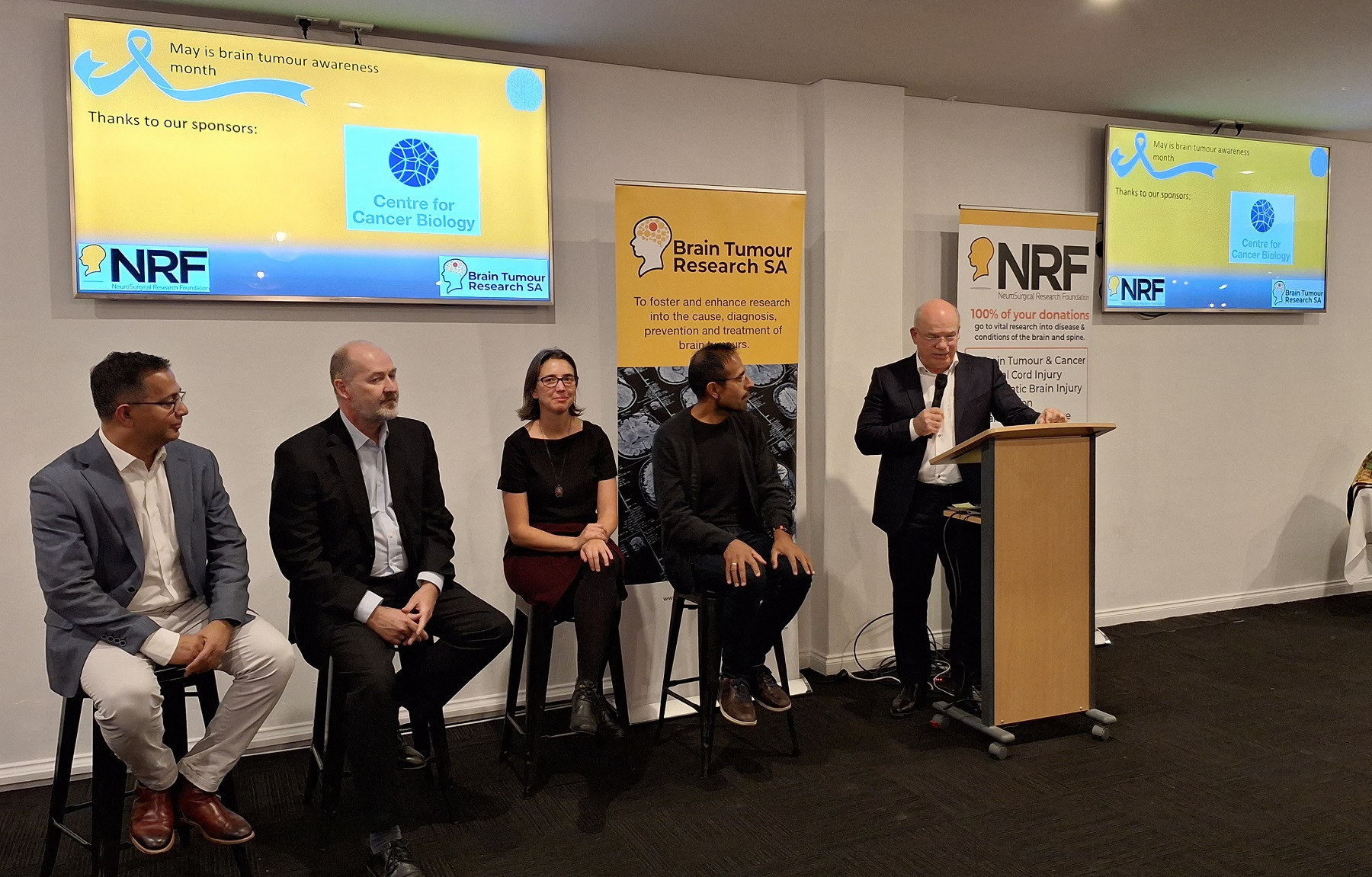
Our 2nd panel involved the researchers and surgeons who have been fighting against this disease with support from the NRF:
Dr Tessa Gargett & Assoc Prof Guillermo Gomez (Centre for Cancer Biology), Professor Stuart Pitson (NRF Chair of Brain Tumour Research), Assoc Prof Santosh Poonnoose (NRF Vice President, Director of South Australian Neurological Tumour Bank)
''Your donations in the past 5 years have contributed $700,000 of seed funding provided by the NRF and has enabled our researchers to attract $32M in further research funded to SA, this equates to 45-fold return for every NRF donated dollar, which is an outstanding result, SO thank you very much for all your support.''
Nick Vrodos NRF President
Dr Tessa Gargett & Assoc Prof spoke about CART Cells a cancer immunotherapy teaching your immune system to recognize and destroy cancer. You read in depth from this article
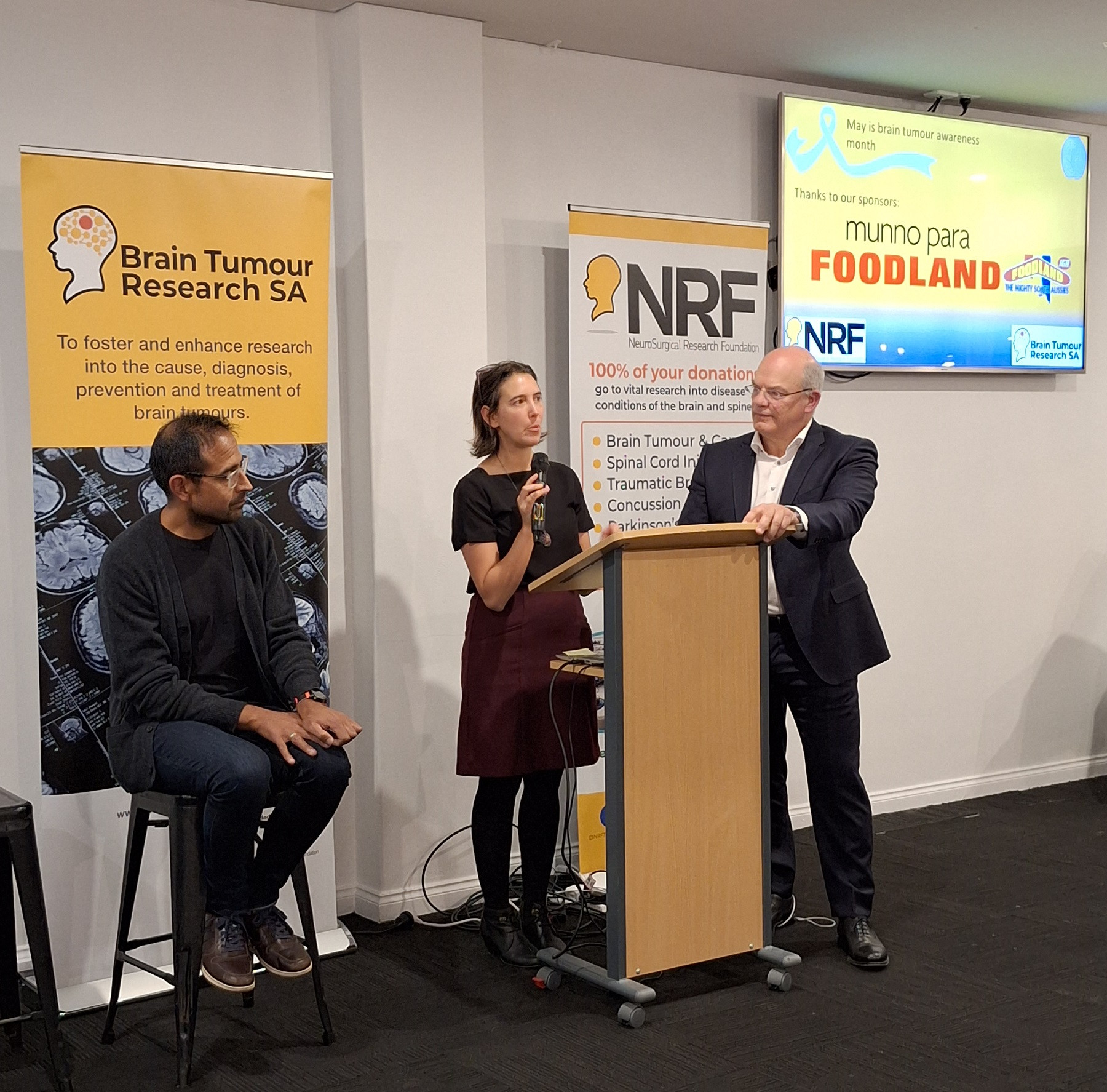
''The NRF have supported both streams of our researcher programs, where we trying to understand the biology of what we are working with and doing phase 1 clinical trials with patients. The NHMRC grant we managed to get was for the preclinical research. It's all about new ideas and how we can develop our immunotherapy technology to make it better. But the clinical research doesn’t get the same kind of federal support, so that is entirely dependent on philanthropic funding like form the NRF. In that phase of our work, we’ve got the tria running at the Royal Adelaide Hospital with patients with Glioblastoma, called CART cell therapy, we call it a living drug, which is my favourite phrase because it is made from a patient's own blood. We make a personalised therapy for each patient here in SA and infuse it back into them. These cells can move to the tumour and destroy it. It's something that is very expensive, very time consuming to make, and we couldn’t do it without philanthropic funding. We are not here to make money; we are here to do research. Its an academic collaboration and we wouldn’t be able to do it without the NRF.''
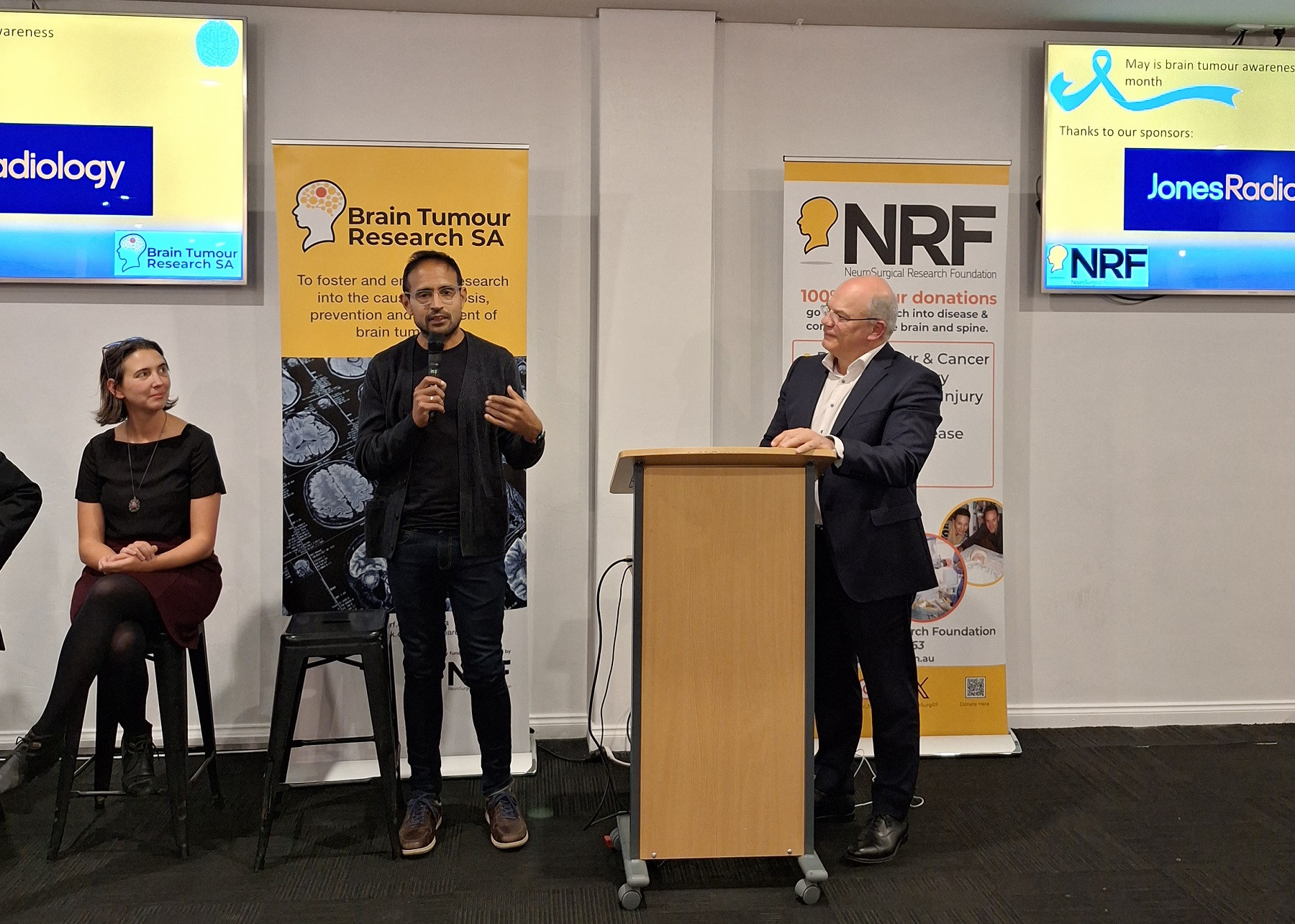
''Last year they supported us so we could treat 6 extra patients. Working with our patients at RAH but also with Paediatric patients in Sydney Children’s Hospital- a national trial supported here in SA.''
Dr Tessa Gargett & Assoc Prof Guillermo Gomez
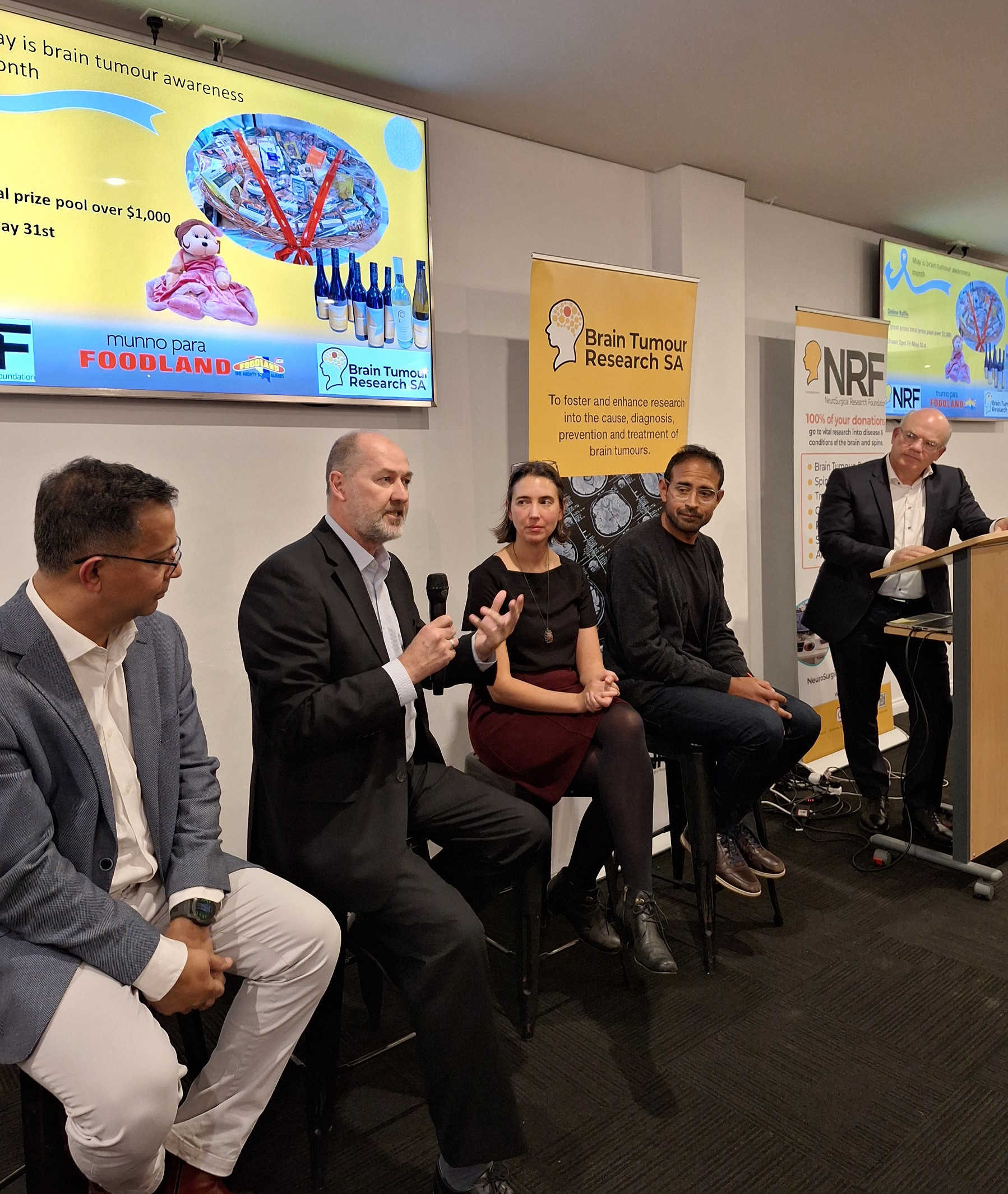
''I am the NRF chair of Brain Tumour Research at UniSA. The NRF wanted to make a major difference to brain tumour patients in the state. We talked about what the position should do - and cutting-edge research is a big part of that, but also the bigger picture, trying to catalyse change and better research productivity, and better research translation from the bench to the clinic.
One of the ways we thought we could that was to try and develop the best possible preclinical models but one of the problems we face in the brain tumour area particular many things look great in the lab but they don’t translate in the clinical trials, they fail. A lot of the time that’s because the models we use in the lab are not good enough. This is where we have tapped into some existing resources that are here: adult brain tumour bank that Assoc Prof Santosh Poonnoose runs down at Flinders, that was been a wealth of power. To get fresh brain tumour material and really develop the best possible models that ware available.
These really have developed into THE equivalent of the best models that are available in the world right here in Adelaide.
More recently the NRF have funded this venture into Paediatric Brain Tumour Biobank, which Professor Jordan Hansford has been driving here in SA.
We have limitations to the number of trials that happen in SA, we are very hopeful, that the new comprehensive cancer centre coming will be a game changer. We are working hard to make sure a brain tumour centre will be part of that, as there is an incredible need here in SA as there are trials that happen in the eastern seaboard don’t happen here which is terrible. We need to change that so that everyone in SA has access to the trails as it the way forward, as we know treatments are currently just not good enough.''
Professor Stuart Pitson NRF Chair of Brain Tumour Research
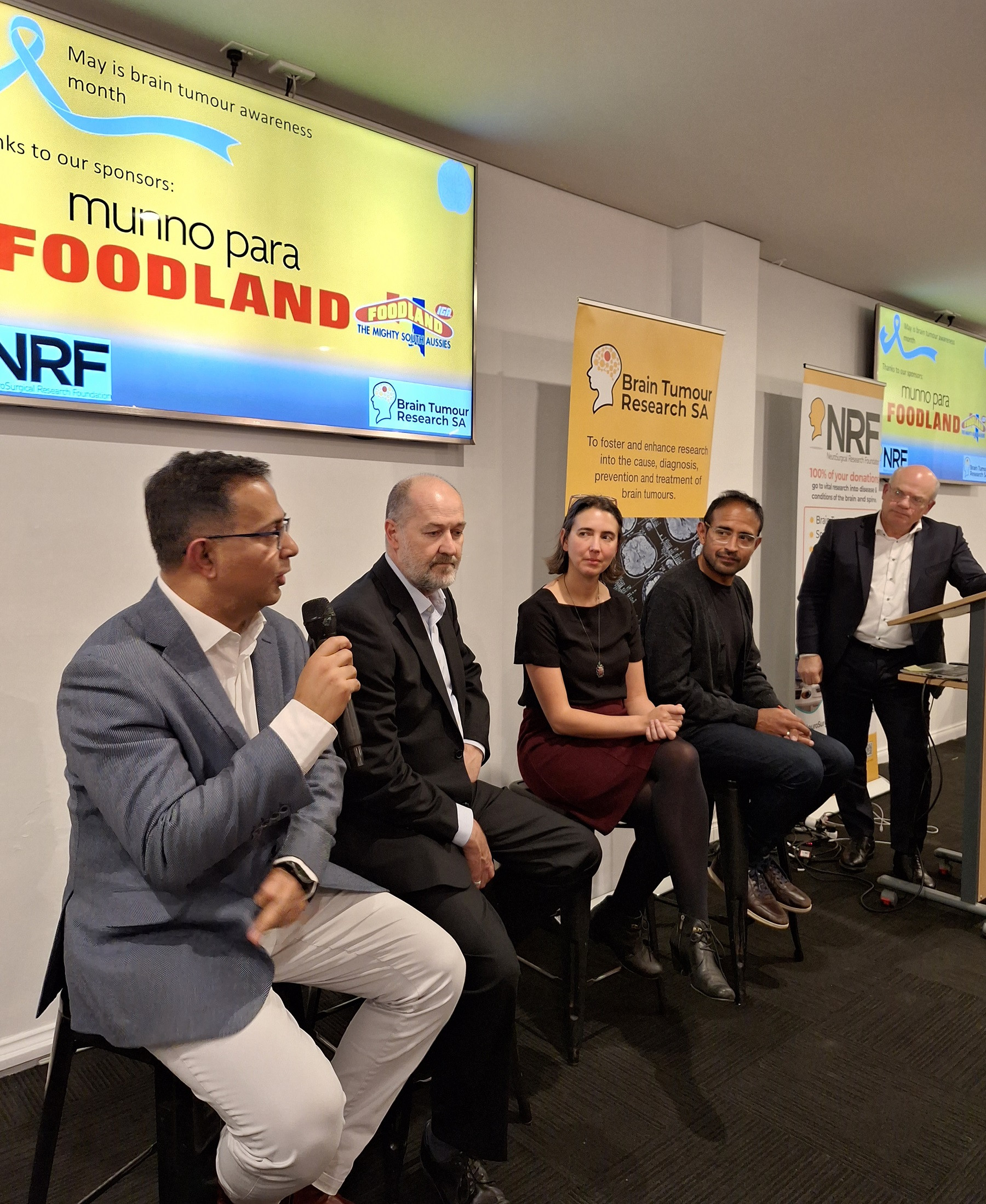
''What can we do better? That is what has driven a lot of what I am doing. The reality is that as surgeons we can only do so much. We have technology on our side using tools to remove as much of the tumour as possible, better imaging and technology now to tell us where we may affect the ability of a person to identify faces - recognize people and to say certain words. IN spite of all of this we still haven’t got a gold bullet to get rid of this horrible disease. This bridge happening here which NRF has facilitated in many ways, and one of them is through the tumour bank and Brain Tumour Research South Australia. (BTRSA)
BTRSA is group of researchers and clinicians, neurosurgeons, medical oncologists & radiation therpaists, all of us who are involved in BT research. This bringing together of these multiple disciplines is what is seeing us grow. Before we had no neuro-oncological research, today, in these past 8-yrs we have brought $32M into the state for research.
What you are doing by donating and giving time, to this whole cause is just being amplified. So where do we go from here, we need to start getting clinical trials, making these things available to our patients, and this where the state getting involved with the nurse coordinator is a huge step. I hope we go from strength to strength, I thank all of you who have been working to this end goal.''
Asssoc Prof Santosh Poonnoose NRF Vice President, Director of South Australian Neurological Tumour Bank
Donate here
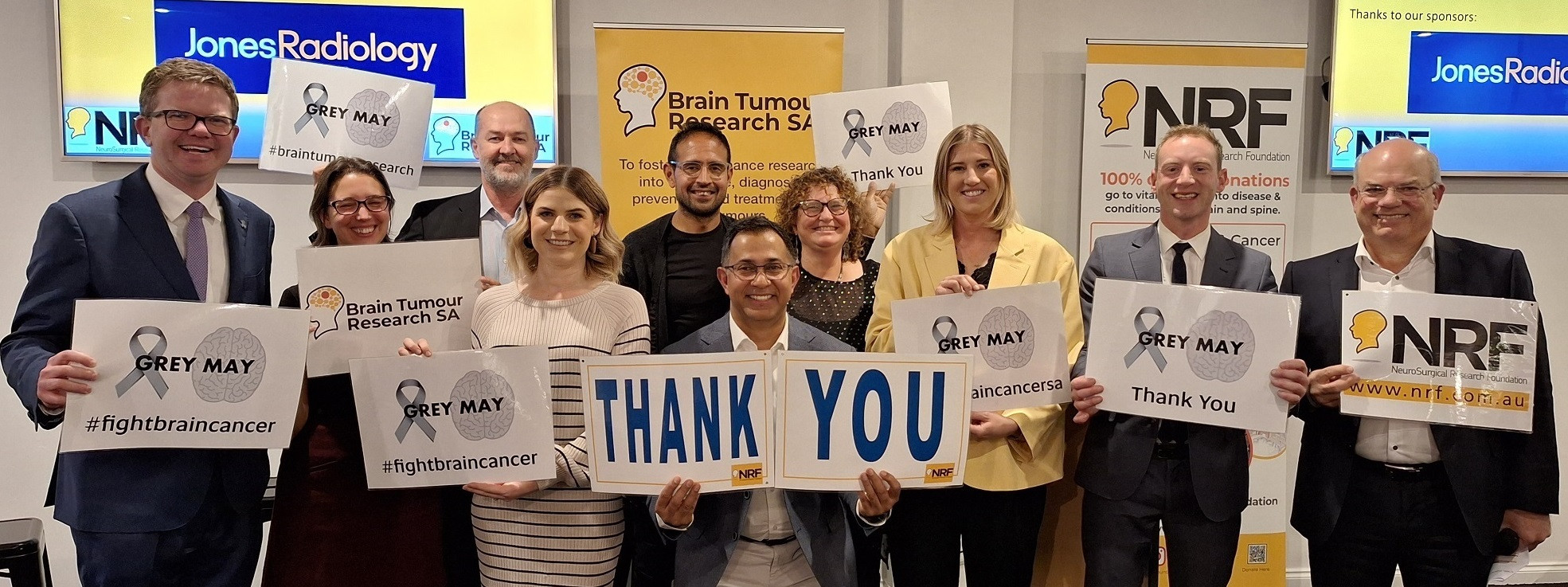
Thank you to our Grey May Sponsors:

![]()
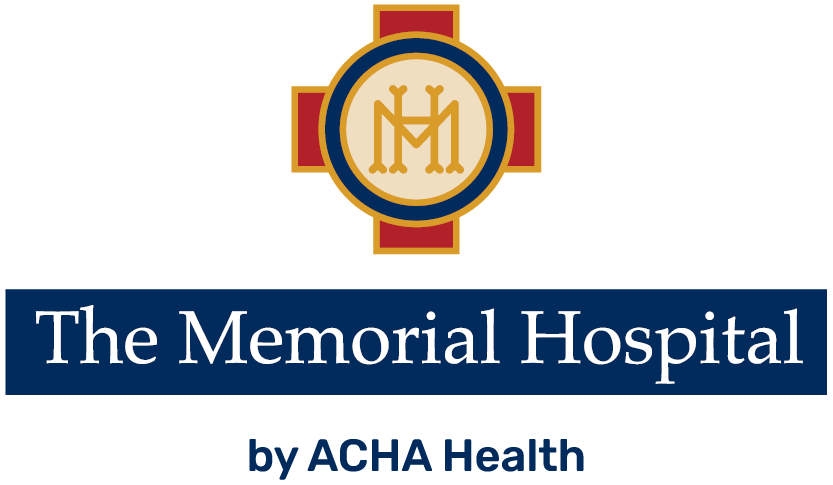
.png)

.jpg)





